![]() Published in Spain - Social interactions and entertainment - 25 Jun 2024 12:30 - 1
Published in Spain - Social interactions and entertainment - 25 Jun 2024 12:30 - 1
Hej! Hola! This is another edition of the "Did you know" saga, this time an unexpected one, just like the Spanish Inquisition! Before starting, vote, subscribe and help me grow my newspaper.
As of today, Spain manages to hold on its original clay and expand further, into the Iberian Peninsula, minus Algavre, the north west part of North Africa (Morocco), Scotland and the northern parts of England, Chungcheongbuk-do, Gyeonggi-do, and Gangwon-do in the Korean Peninsula.
Spain is the 9th most populated country in the world, having about 150 citizens. Inkietud is the 14th political party, having 27 members. Tercios Espanoles is the 11th biggest military unit. Newspaper Vampirologia by Zakk Bloodworth is the 7th most read media in the world. In a more general term, Spain has over 10 newspapers with 10 subscribers each.
In military terms, Spain is the 12th strongest nation in the world with over 12B damage happening last 7 days. Tercios Espanoles is 12th strongest military unit in terms of damage.
Minister of Defence, Ragn0 is the strongest citizen, being one of the 8 SF First Lieutenants
in the game, and also he is a Rear Admiral *, making it at 7th position in the navy battles. In terms of total damage, he has inflicted more than 79B, 9th in the world.
1. The Forgotten Muslim Kingdoms
While the Reconquista—the Christian reconquest of Iberian territories from Muslim rule—is a well-documented period, the nuanced history of the Muslim kingdoms that once thrived in Spain is less commonly highlighted. Al-Andalus, the Muslim-ruled region of the Iberian Peninsula, was a beacon of cultural and scientific advancement during the Middle Ages. Cities like Córdoba and Granada became centers of learning and innovation, housing libraries, universities, and sophisticated infrastructure. The period saw significant contributions in fields such as mathematics, astronomy, medicine, and philosophy, with scholars like Averroes (Ibn Rushd) and Maimonides making lasting impacts.
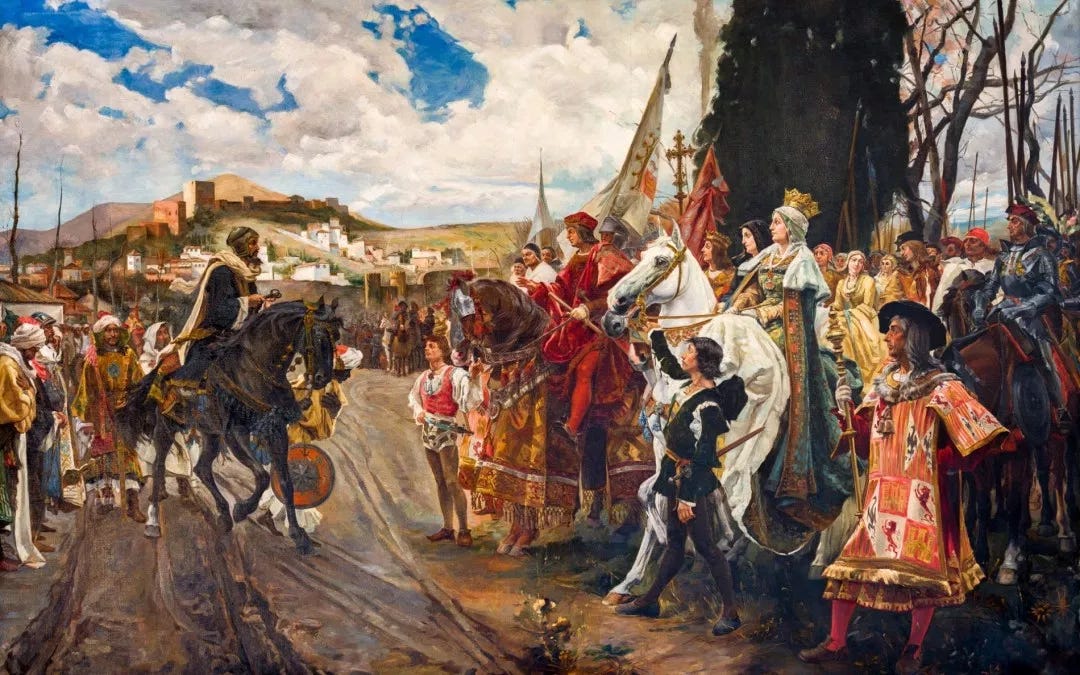
2. The Basque Mystique
The Basque Country, located in northern Spain, is home to one of Europe’s oldest and most enigmatic cultures. The Basque language, Euskara, is a linguistic isolate, meaning it has no known relation to any other language family. This unique cultural and linguistic heritage has fascinated historians and linguists for centuries. The Basques also played a crucial role in the maritime history of Spain, excelling as shipbuilders and navigators. Their fishing and whaling expertise significantly contributed to the Spanish economy during the Middle Ages.
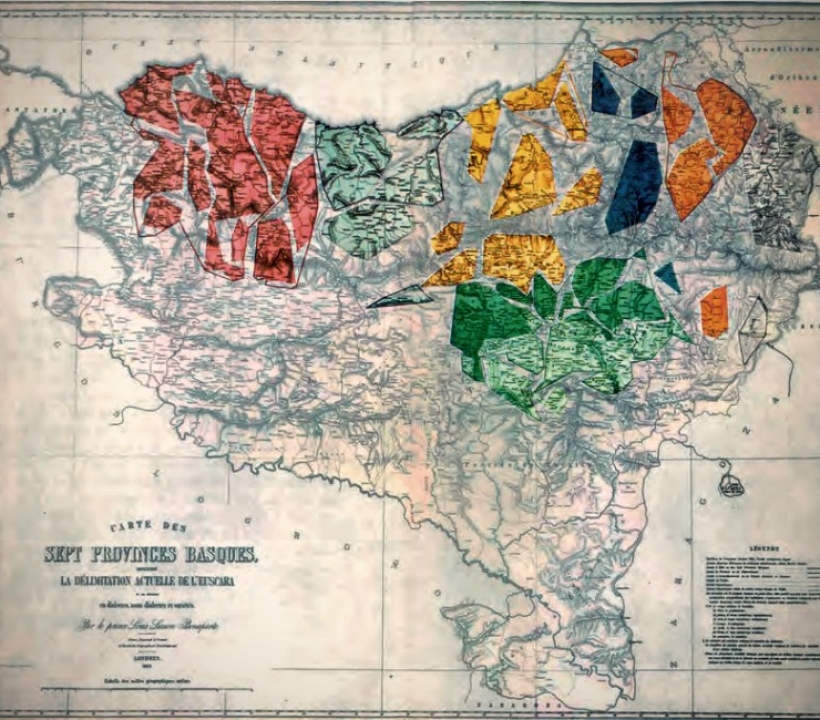
3. The Sephardic Legacy
Spain's Jewish history, particularly the Sephardic Jews, offers another layer of its complex past. Before their expulsion in 1492, the Sephardic Jews had a flourishing presence in Spain for over a millennium. They were integral to the cultural and economic life of medieval Spain, contributing to philosophy, medicine, and the arts. Despite the expulsion, the Sephardic diaspora has kept their traditions and language, Ladino, alive, maintaining a connection to their Spanish roots. In recent years, Spain has made efforts to reconcile with this past, offering citizenship to the descendants of expelled Jews as an acknowledgment of their historical contribution.
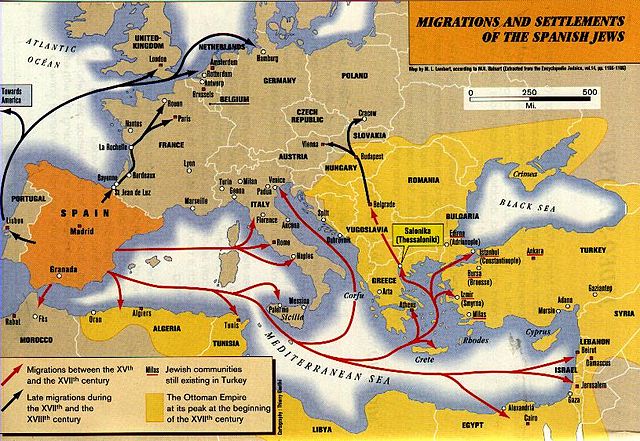
4. The Spanish Civil War: A Prelude to Global Conflict
The Spanish Civil War (1936-1939) is often overshadowed by the subsequent Second World War, yet it was a significant prelude to the global conflict. The war was a brutal clash between the Republicans, who advocated for a secular and progressive Spain, and the Nationalists, led by General Francisco Franco, who sought a conservative, Catholic Spain. The conflict drew international attention, with volunteers from around the world joining the fight, and saw the first widespread use of modern warfare tactics and technologies. The war left deep scars on Spanish society and was a harbinger of the ideological battles that would soon engulf the world.

5. Spain's Neutrality in the World Wars
Despite the tumultuous period of the early 20th century, Spain managed to maintain a stance of neutrality during both World Wars. This neutrality is often overlooked, yet it had significant implications for the country. During World War I, Spain's neutral position allowed it to become a center for diplomacy and trade, which boosted its economy. In World War II, Franco's regime, though ideologically aligned with the Axis powers, chose not to enter the conflict directly. This decision spared Spain from the widespread devastation experienced by other European nations, although it left the country isolated and under Franco's dictatorship until his death in 1975.

6. The Enigmatic El Cid
Rodrigo Díaz de Vivar, known as El Cid, is a legendary figure in Spanish history, often depicted as a national hero who fought to reclaim Spanish territories from the Moors. However, the true story of El Cid is more complex and intriguing. He was a mercenary who served both Christian and Muslim rulers, navigating the shifting allegiances and power struggles of his time. His story, immortalized in the epic poem "El Cantar de Mio Cid," reflects the multicultural and often contentious nature of medieval Spain.

7. The Spanish Flu Misnomer
The deadly influenza pandemic of 1918-1919, commonly known as the Spanish Flu, did not actually originate in Spain. The misnomer arose because Spain, a neutral country during World War I, had a free press that openly reported on the pandemic, unlike the heavily censored press of the warring nations. As a result, the world first learned of the outbreak through Spanish news, leading to the erroneous association.
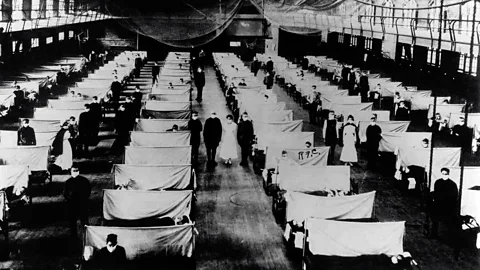
8. The Artistic Vanguard
Spain has been a cradle of avant-garde art movements, often overshadowed by its more traditional cultural exports like flamenco and bullfighting. In the early 20th century, Spanish artists like Pablo Picasso and Salvador Dalí revolutionized the art world. Picasso's "Guernica," a powerful anti-war painting, and Dalí's surrealist works have left an indelible mark on global art history. Furthermore, the Movida Madrileña, a countercultural movement that emerged after Franco's death, reinvigorated Spanish culture with new expressions in music, film, and visual arts.
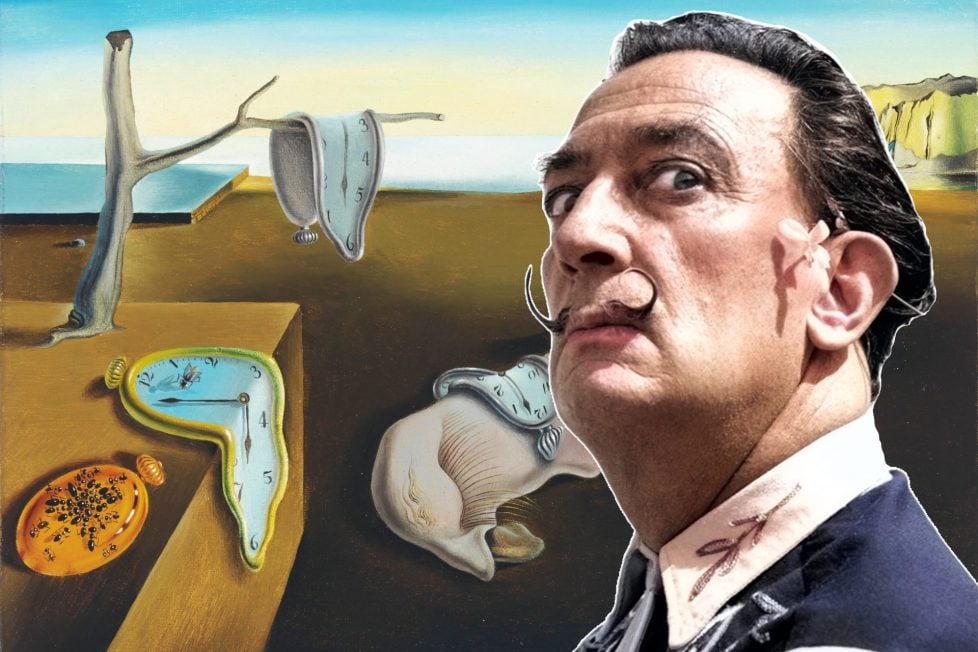
That's all regarding Spain,
I hope you liked it, V+S and be well!
Until next time,

As of today, Spain manages to hold on its original clay and expand further, into the Iberian Peninsula, minus Algavre, the north west part of North Africa (Morocco), Scotland and the northern parts of England, Chungcheongbuk-do, Gyeonggi-do, and Gangwon-do in the Korean Peninsula.
Spain is the 9th most populated country in the world, having about 150 citizens. Inkietud is the 14th political party, having 27 members. Tercios Espanoles is the 11th biggest military unit. Newspaper Vampirologia by Zakk Bloodworth is the 7th most read media in the world. In a more general term, Spain has over 10 newspapers with 10 subscribers each.
In military terms, Spain is the 12th strongest nation in the world with over 12B damage happening last 7 days. Tercios Espanoles is 12th strongest military unit in terms of damage.
Minister of Defence, Ragn0 is the strongest citizen, being one of the 8 SF First Lieutenants
in the game, and also he is a Rear Admiral *, making it at 7th position in the navy battles. In terms of total damage, he has inflicted more than 79B, 9th in the world.
1. The Forgotten Muslim Kingdoms
While the Reconquista—the Christian reconquest of Iberian territories from Muslim rule—is a well-documented period, the nuanced history of the Muslim kingdoms that once thrived in Spain is less commonly highlighted. Al-Andalus, the Muslim-ruled region of the Iberian Peninsula, was a beacon of cultural and scientific advancement during the Middle Ages. Cities like Córdoba and Granada became centers of learning and innovation, housing libraries, universities, and sophisticated infrastructure. The period saw significant contributions in fields such as mathematics, astronomy, medicine, and philosophy, with scholars like Averroes (Ibn Rushd) and Maimonides making lasting impacts.

2. The Basque Mystique
The Basque Country, located in northern Spain, is home to one of Europe’s oldest and most enigmatic cultures. The Basque language, Euskara, is a linguistic isolate, meaning it has no known relation to any other language family. This unique cultural and linguistic heritage has fascinated historians and linguists for centuries. The Basques also played a crucial role in the maritime history of Spain, excelling as shipbuilders and navigators. Their fishing and whaling expertise significantly contributed to the Spanish economy during the Middle Ages.

3. The Sephardic Legacy
Spain's Jewish history, particularly the Sephardic Jews, offers another layer of its complex past. Before their expulsion in 1492, the Sephardic Jews had a flourishing presence in Spain for over a millennium. They were integral to the cultural and economic life of medieval Spain, contributing to philosophy, medicine, and the arts. Despite the expulsion, the Sephardic diaspora has kept their traditions and language, Ladino, alive, maintaining a connection to their Spanish roots. In recent years, Spain has made efforts to reconcile with this past, offering citizenship to the descendants of expelled Jews as an acknowledgment of their historical contribution.

4. The Spanish Civil War: A Prelude to Global Conflict
The Spanish Civil War (1936-1939) is often overshadowed by the subsequent Second World War, yet it was a significant prelude to the global conflict. The war was a brutal clash between the Republicans, who advocated for a secular and progressive Spain, and the Nationalists, led by General Francisco Franco, who sought a conservative, Catholic Spain. The conflict drew international attention, with volunteers from around the world joining the fight, and saw the first widespread use of modern warfare tactics and technologies. The war left deep scars on Spanish society and was a harbinger of the ideological battles that would soon engulf the world.

5. Spain's Neutrality in the World Wars
Despite the tumultuous period of the early 20th century, Spain managed to maintain a stance of neutrality during both World Wars. This neutrality is often overlooked, yet it had significant implications for the country. During World War I, Spain's neutral position allowed it to become a center for diplomacy and trade, which boosted its economy. In World War II, Franco's regime, though ideologically aligned with the Axis powers, chose not to enter the conflict directly. This decision spared Spain from the widespread devastation experienced by other European nations, although it left the country isolated and under Franco's dictatorship until his death in 1975.

6. The Enigmatic El Cid
Rodrigo Díaz de Vivar, known as El Cid, is a legendary figure in Spanish history, often depicted as a national hero who fought to reclaim Spanish territories from the Moors. However, the true story of El Cid is more complex and intriguing. He was a mercenary who served both Christian and Muslim rulers, navigating the shifting allegiances and power struggles of his time. His story, immortalized in the epic poem "El Cantar de Mio Cid," reflects the multicultural and often contentious nature of medieval Spain.
7. The Spanish Flu Misnomer
The deadly influenza pandemic of 1918-1919, commonly known as the Spanish Flu, did not actually originate in Spain. The misnomer arose because Spain, a neutral country during World War I, had a free press that openly reported on the pandemic, unlike the heavily censored press of the warring nations. As a result, the world first learned of the outbreak through Spanish news, leading to the erroneous association.

8. The Artistic Vanguard
Spain has been a cradle of avant-garde art movements, often overshadowed by its more traditional cultural exports like flamenco and bullfighting. In the early 20th century, Spanish artists like Pablo Picasso and Salvador Dalí revolutionized the art world. Picasso's "Guernica," a powerful anti-war painting, and Dalí's surrealist works have left an indelible mark on global art history. Furthermore, the Movida Madrileña, a countercultural movement that emerged after Franco's death, reinvigorated Spanish culture with new expressions in music, film, and visual arts.

That's all regarding Spain,
I hope you liked it, V+S and be well!
Until next time,

Support
Comments (1)

Nadie te ha leído pero soy patrimonio cultura por ser vasco xDD


